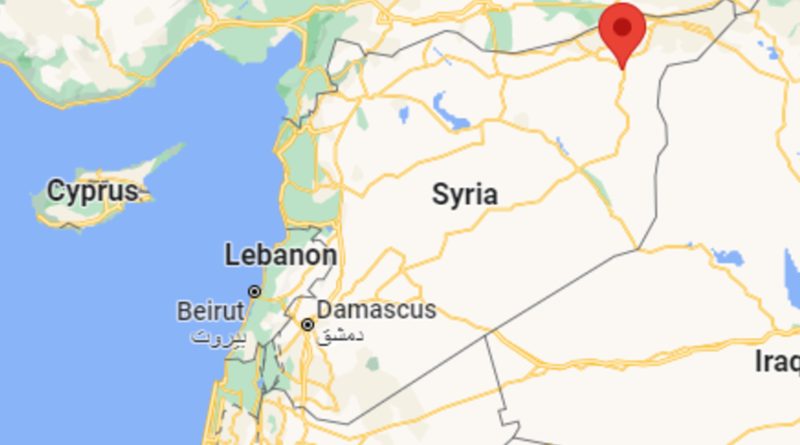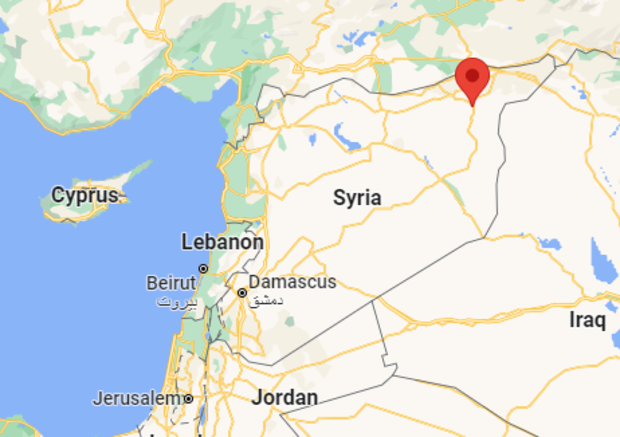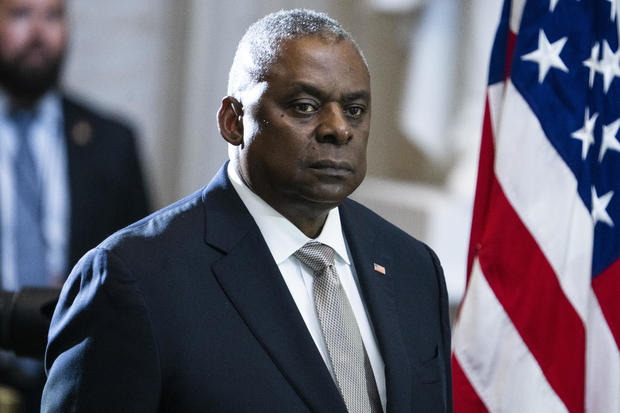U.S. carries out airstrikes in Syria after suspected Iranian drone kills American contractor and wounds 5 U.S. service members

A U.S. contractor was killed and five U.S. service members and one other U.S. contractor were wounded when a suspected Iranian drone struck a facility on a coalition base in northeast Syria on Thursday, the Pentagon said.
In a statement released late Thursday, Defense Secretary Lloyd Austin said U.S. Central Command forces retaliated with “precision airstrikes” against facilities in eastern Syria used by groups affiliated with Iran’s Revolutionary Guard. The Defense Department said the intelligence community had determined the unmanned aerial vehicle was of Iranian origin.
“The airstrikes were conducted in response to today’s attack as well as a series of recent attacks against Coalition forces in Syria” by groups affiliated with the Revolutionary Guard, Austin said, adding that he authorized the retaliatory strikes at the direction of President Biden.
“As President Biden has made clear, we will take all necessary measures to defend our people and will always respond at a time and place of our choosing,” Austin said. “No group will strike our troops with impunity.”
Austin said, “The United States took proportionate and deliberate action intended to limit the risk of escalation and minimize casualties.”
U.S. Army Gen. Michael “Erik” Kurilla, the head of the American military’s Central Command, warned that American forces could carry out additional strikes if needed. “We are postured for scalable options in the face of any additional Iranian attacks,” Kurilla said in a statement.
The Pentagon said two of the wounded service members were treated on site, while three others and the injured contractor were transported to medical facilities in Iraq.
Overnight, videos on social media purported to show explosions in Syria’s Deir Ez-Zor, a strategic province that borders Iraq and contains oil fields.
Iran-backed militia groups and Syrian forces control the area, which also has seen suspected airstrikes by Israel in recent months allegedly targeting Iranian supply routes.
Google Maps
Iran’s paramilitary Revolutionary Guard, which answers only to Supreme Leader Ayatollah Ali Khamenei, has been suspected of carrying out attacks with bomb-carrying drones across the wider Middle East. In recent months, Russia has begun using Iranian drones in its attacks on sites across Ukraine as part of its war on Kyiv. Iran has denied being responsible for these attacks, though Western nations and experts have tied components in the drones back to Tehran.
The attack and U.S. response threaten to upend recent efforts in the region to deescalate tensions, as Saudi Arabia and Iran have been working toward reopening embassies in each other’s countries. The kingdom also acknowledged efforts to reopen its embassy in Syria, whose embattled President Bashar Assad has been backed by Iran in his country’s long war.
Syria’s state-run SANA news agency didn’t immediately acknowledge any strikes. Syria’s mission to the United Nations didn’t immediately respond to a request for comment.
There was no immediate reaction from Iran to the strikes, which come during the holy Muslim fasting month of Ramadan. Iran’s mission to the United Nations didn’t immediately respond to a request for comment.
Qatar’s state-run news agency reported a call between its foreign minister and Jake Sullivan, the U.S. national security adviser. Doha has been an interlocutor between Iran and the U.S. recently amid tensions over Tehran’s nuclear program.
Qatar’s foreign minister also spoke around the same time with Iranian Foreign Minister Hossein Amirabdollahian.
The U.S. under Mr. Biden has struck Syria previously over tensions with Iran. In February and June of 2021, as well as August 2022, he authorized attacks there.
Tom Williams /CQ-Roll Call, Inc via Getty Images
U.S. forces entered Syria in 2015, backing allied forces in their fight against the ISIS. The U.S. still maintains the base near Hasakah in northeast Syria where Thursday’s drone strike happened. There are roughly 900 U.S. troops, and even more contractors in Syria, including in the north and farther south and east.
Syria’s war began with the 2011 Arab Spring protests that roiled the wider Middle East and toppled governments in Egypt, Libya, Tunisia and Yemen. It later morphed into a regional proxy conflict that’s seen Russia and Iran back Assad. The United Nations estimates over 300,000 civilians have been killed in the war. Those figures don’t include soldiers and insurgents killed in the conflict; their numbers are believed to be in the tens of thousands.







